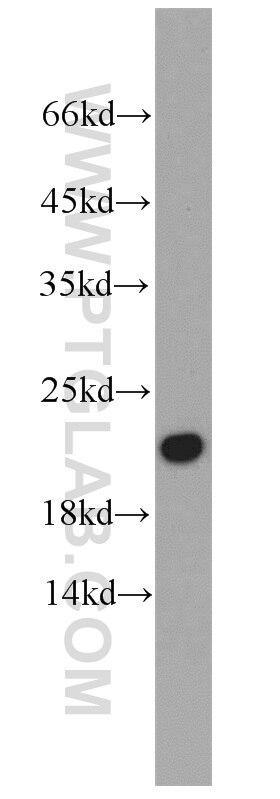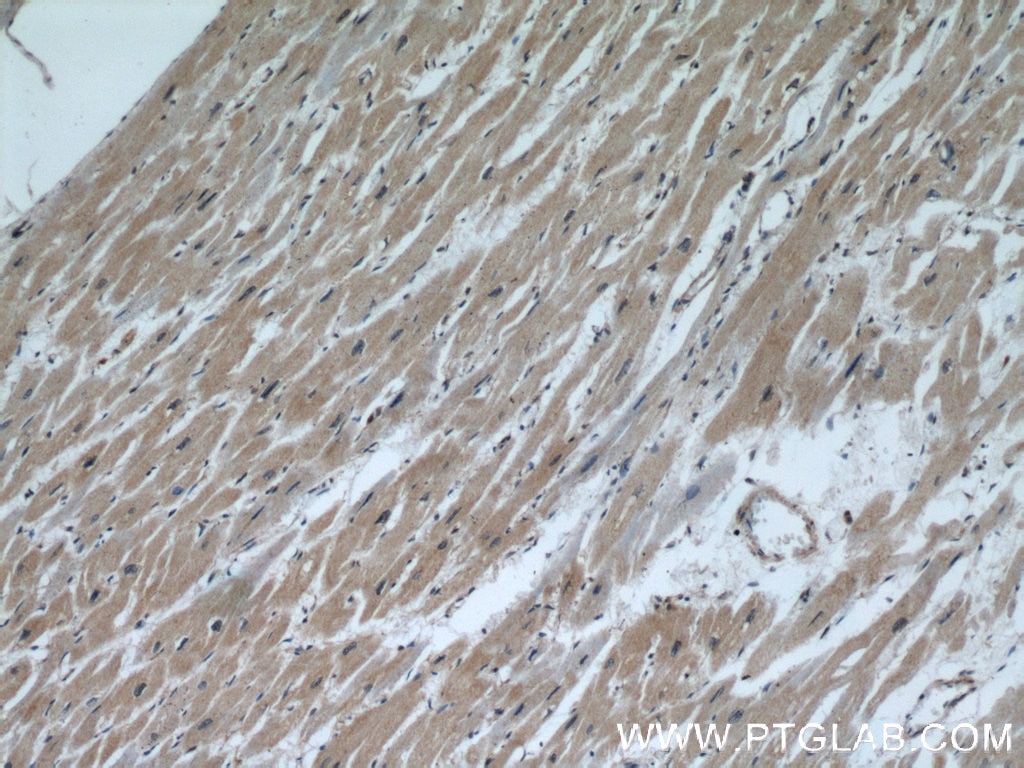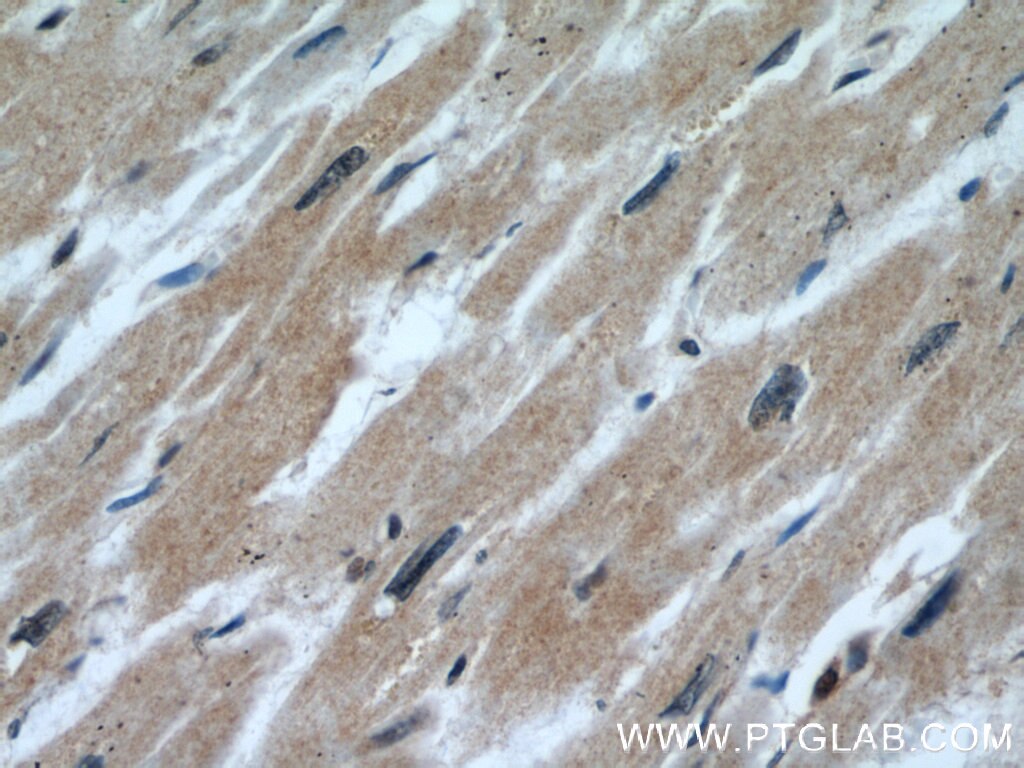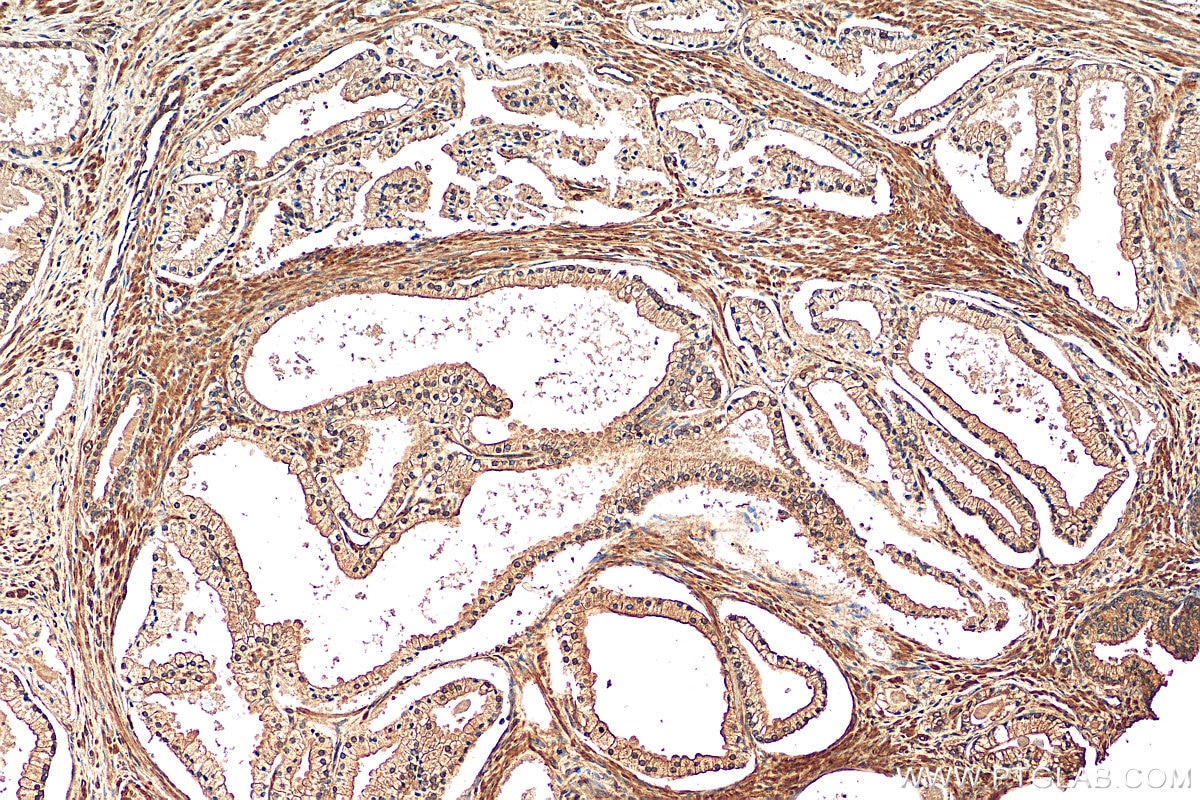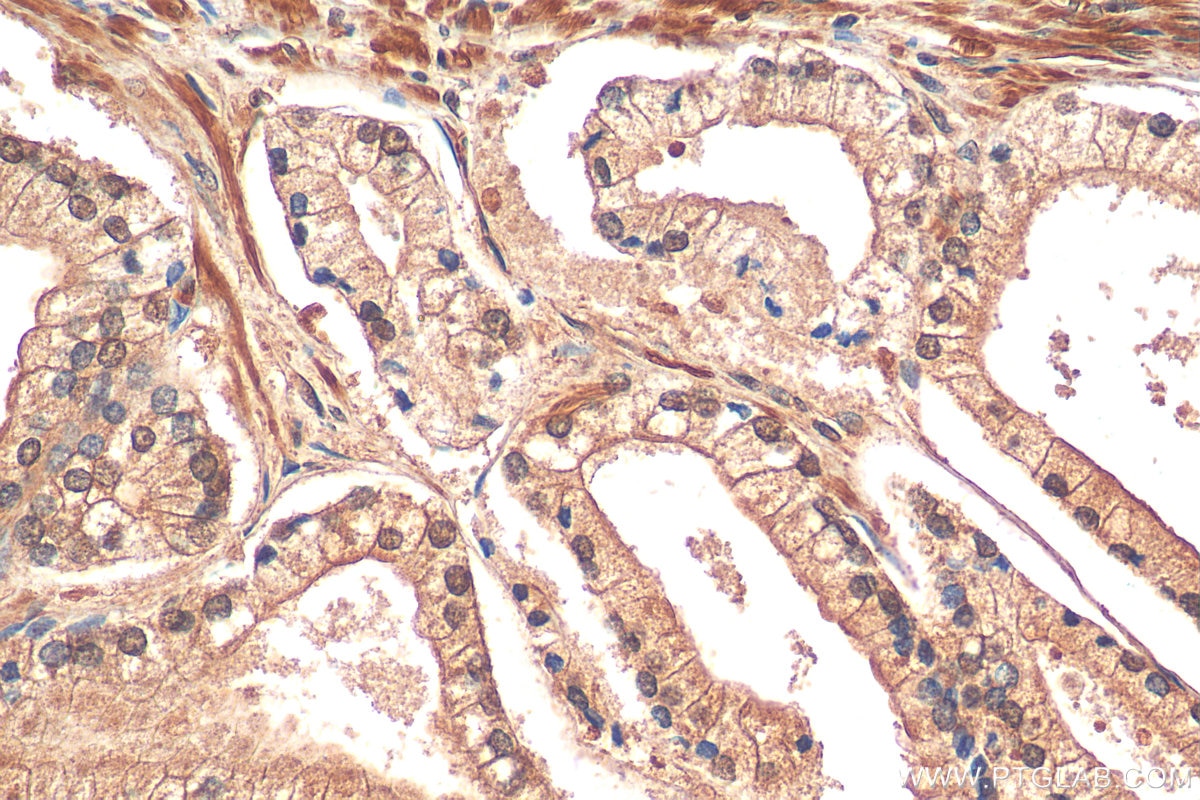CALML6 Polyclonal antibody
CALML6 Polyclonal Antibody for WB, IHC, ELISA
Host / Isotype
Rabbit / IgG
Reactivity
human, pig
Applications
WB, IHC, ELISA
Conjugate
Unconjugated
Cat no : 22274-1-AP
Synonyms
Validation Data Gallery
Tested Applications
| Positive WB detected in | human heart tissue, pig heart tissue |
| Positive IHC detected in | human heart tissue, human prostate hyperplasia tissue Note: suggested antigen retrieval with TE buffer pH 9.0; (*) Alternatively, antigen retrieval may be performed with citrate buffer pH 6.0 |
Recommended dilution
| Application | Dilution |
|---|---|
| Western Blot (WB) | WB : 1:500-1:1000 |
| Immunohistochemistry (IHC) | IHC : 1:20-1:200 |
| It is recommended that this reagent should be titrated in each testing system to obtain optimal results. | |
| Sample-dependent, Check data in validation data gallery. | |
Published Applications
| IHC | See 2 publications below |
Product Information
22274-1-AP targets CALML6 in WB, IHC, ELISA applications and shows reactivity with human, pig samples.
| Tested Reactivity | human, pig |
| Cited Reactivity | human |
| Host / Isotype | Rabbit / IgG |
| Class | Polyclonal |
| Type | Antibody |
| Immunogen | Peptide 相同性解析による交差性が予測される生物種 |
| Full Name | calmodulin-like 6 |
| Calculated molecular weight | 21 kDa |
| Observed molecular weight | 21 kDa |
| GenBank accession number | NM_138705 |
| Gene symbol | CALML6 |
| Gene ID (NCBI) | 163688 |
| RRID | AB_11182942 |
| Conjugate | Unconjugated |
| Form | Liquid |
| Purification Method | Antigen affinity purification |
| Storage Buffer | PBS with 0.02% sodium azide and 50% glycerol pH 7.3. |
| Storage Conditions | Store at -20°C. Stable for one year after shipment. Aliquoting is unnecessary for -20oC storage. |
Background Information
CALML6, also named as CAGLP, CALGP , belongs to the calmodulin family and Calglandulin subfamily. It contains 4 EF-hand domains. The antibody is specific to CALML6.
Protocols
| Product Specific Protocols | |
|---|---|
| WB protocol for CALML6 antibody 22274-1-AP | Download protocol |
| IHC protocol for CALML6 antibody 22274-1-AP | Download protocol |
| Standard Protocols | |
|---|---|
| Click here to view our Standard Protocols |
Publications
| Species | Application | Title |
|---|---|---|
Technol Cancer Res Treat A Pyroptosis-Related Gene Signature Predicts Prognosis and Tumor Immune Microenvironment in Colorectal Cancer | ||
Gene CALML6 as a potential diagnostic marker for thyroid cancer promotes thyroid cancer cell proliferation via modulating the immune microenvironment |
